Intro
Identify ectopic pregnancy bleeding symptoms, including vaginal bleeding, abdominal pain, and dizziness, to seek timely medical help and prevent complications like hemorrhage and infertility, recognizing early warning signs is crucial.
Ectopic pregnancy is a serious medical condition that occurs when a fertilized egg implants outside the uterus, typically in the fallopian tube. This can lead to severe bleeding and other complications if left untreated. Recognizing the symptoms of ectopic pregnancy bleeding is crucial for prompt medical attention and preventing potential life-threatening consequences. In this article, we will delve into the importance of identifying ectopic pregnancy bleeding symptoms and the necessary steps to take if you or someone you know is experiencing them.
The symptoms of ectopic pregnancy can be subtle and may resemble those of a normal pregnancy or a miscarriage. However, it is essential to be aware of the warning signs to ensure timely medical intervention. Some common symptoms of ectopic pregnancy include abdominal pain, vaginal bleeding, and shoulder pain. Abdominal pain can range from mild to severe and may be accompanied by vaginal bleeding, which can be heavy or light. Shoulder pain is another symptom that can occur due to blood leaking from the fallopian tube and irritating the diaphragm.
Ectopic pregnancy bleeding symptoms can be life-threatening if not addressed promptly. The bleeding can lead to shock, organ failure, and even death if not treated immediately. It is crucial to seek medical attention right away if you experience any of the following symptoms: severe abdominal pain, heavy vaginal bleeding, fainting or dizziness, or shoulder pain. A healthcare provider can perform an ultrasound and blood tests to confirm the diagnosis and provide appropriate treatment. Early detection and treatment can significantly improve outcomes and prevent long-term complications.
Ectopic Pregnancy Causes and Risk Factors
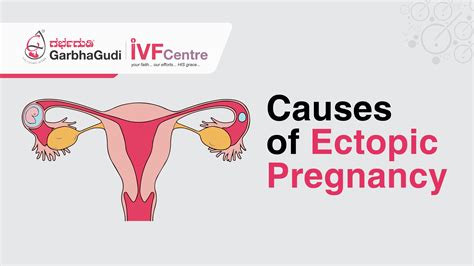
Factors That Increase the Risk of Ectopic Pregnancy
Several factors can increase the risk of ectopic pregnancy, including: * Pelvic inflammatory disease (PID) * Endometriosis * Previous ectopic pregnancy * Previous abdominal or pelvic surgery * Age over 35 years * Smoking * Infertility treatments * Previous intrauterine device (IUD) useEctopic Pregnancy Symptoms and Diagnosis
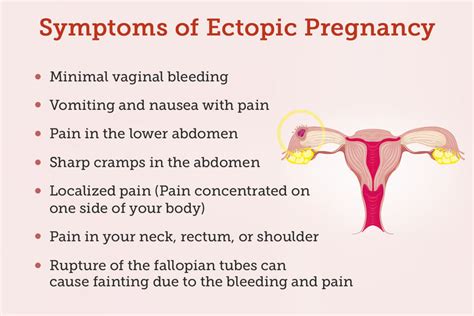
Diagnostic Tests for Ectopic Pregnancy
Diagnostic tests for ectopic pregnancy include: * Pelvic exam * Ultrasound * Blood tests (hCG and progesterone levels) * Laparoscopy (a minimally invasive surgical procedure to visualize the fallopian tubes and uterus)Treatment Options for Ectopic Pregnancy
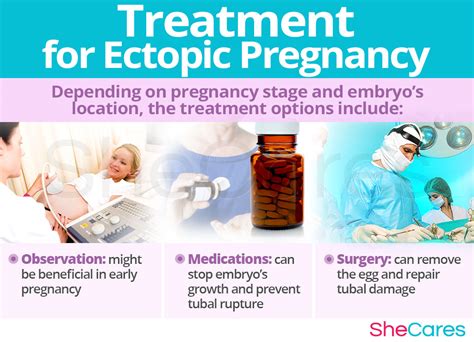
Treatment Options for Ectopic Pregnancy
Treatment options for ectopic pregnancy include: * Observation and monitoring * Medications (methotrexate) * Laparoscopic surgery * Open surgery (in severe cases)Complications of Ectopic Pregnancy

Long-Term Complications of Ectopic Pregnancy
Long-term complications of ectopic pregnancy include: * Infertility * Recurrent ectopic pregnancy * Chronic pelvic pain * Adhesions and scarring in the fallopian tubesPrevention of Ectopic Pregnancy
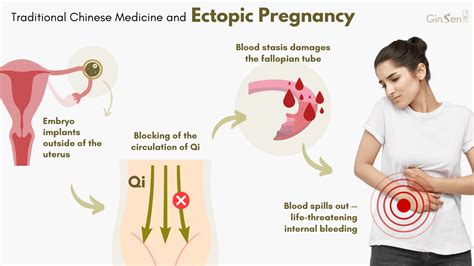
Ways to Reduce the Risk of Ectopic Pregnancy
Ways to reduce the risk of ectopic pregnancy include: * Practicing safe sex * Avoiding smoking * Maintaining a healthy weight * Getting regular check-ups with a healthcare provider * Discussing medical history and risk factors with a healthcare providerEctopic Pregnancy and Emotional Well-being
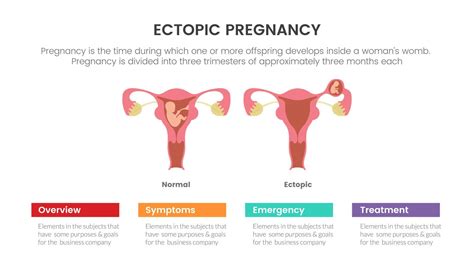
Coping with the Emotional Aftermath of Ectopic Pregnancy
Ways to cope with the emotional aftermath of ectopic pregnancy include: * Seeking support from loved ones * Talking to a therapist or counselor * Joining a support group * Practicing self-care and stress-reducing techniques * Allowing yourself to grieve and process your emotionsConclusion and Next Steps
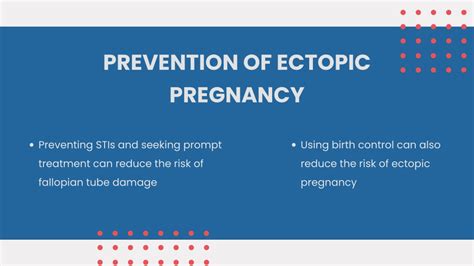
We invite you to share your thoughts and experiences with ectopic pregnancy in the comments below. If you have any questions or concerns, please don't hesitate to reach out. Let's work together to raise awareness and support for women who have experienced ectopic pregnancy.
What are the symptoms of ectopic pregnancy?
+The symptoms of ectopic pregnancy include abdominal pain, vaginal bleeding, and shoulder pain. Severe cases can lead to fainting, dizziness, and shock.
How is ectopic pregnancy diagnosed?
+Ectopic pregnancy is diagnosed through a physical exam, ultrasound, and blood tests. The ultrasound can help locate the fertilized egg and determine if it is implanted outside the uterus.
What are the treatment options for ectopic pregnancy?
+Treatment options for ectopic pregnancy include observation and monitoring, medications, laparoscopic surgery, and open surgery. The choice of treatment depends on the severity of the condition and the woman's overall health.
Can ectopic pregnancy be prevented?
+While it is not possible to completely prevent ectopic pregnancy, there are steps that can be taken to reduce the risk. Practicing safe sex, avoiding smoking, and maintaining a healthy weight can help reduce the risk of ectopic pregnancy.
What is the long-term outlook for women who have had an ectopic pregnancy?
+Women who have had an ectopic pregnancy are at higher risk of having another ectopic pregnancy in the future. They may also experience infertility, recurrent ectopic pregnancy, and chronic pelvic pain. However, with proper treatment and care, many women can go on to have healthy pregnancies and babies.
